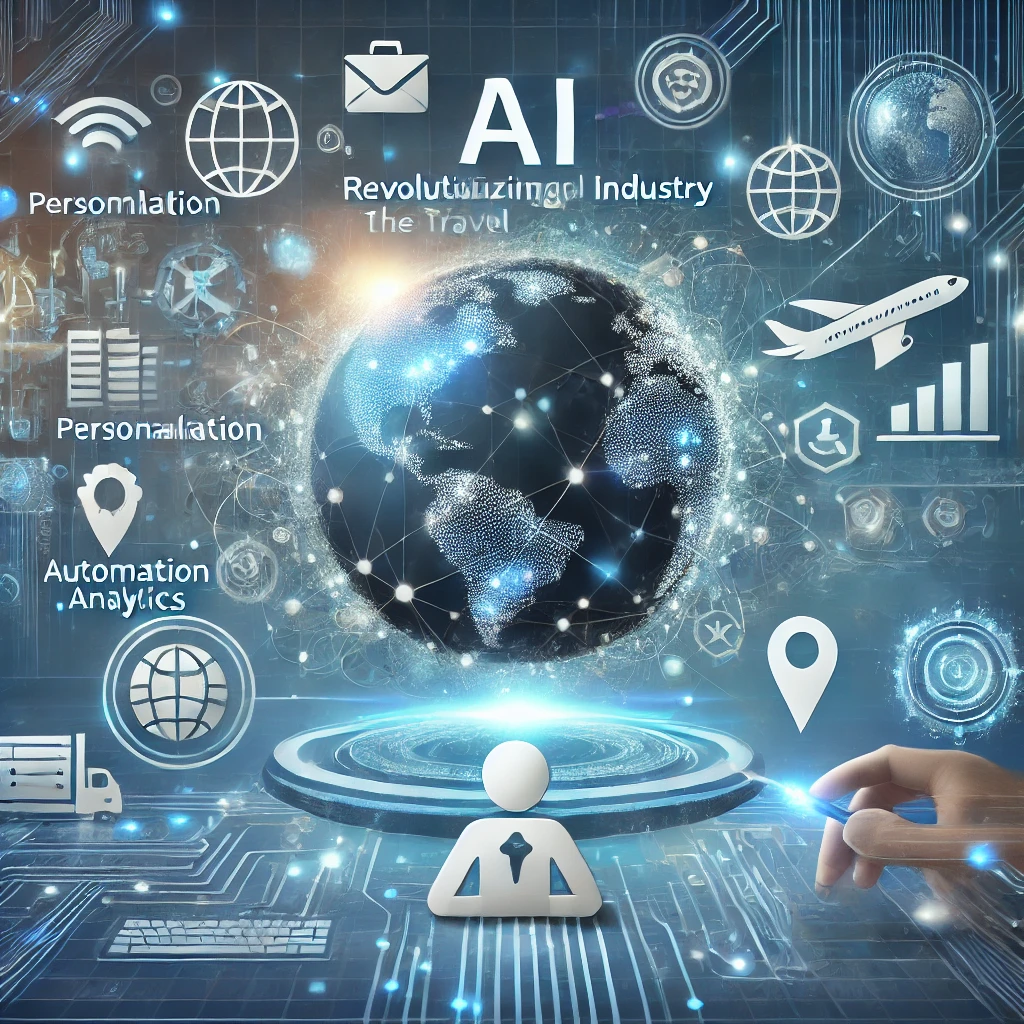Introduction:
The travel industry is undergoing a digital revolution, with artificial intelligence (AI) tools leading the charge. As travel agents strive to stay competitive in a rapidly evolving market, AI offers a powerful solution for enhancing efficiency, personalizing customer experiences, and driving business growth. For CTOs and industry executives, understanding how to leverage these tools is not just an option—it’s a necessity. This article explores the top AI tools that are transforming the travel industry, offering actionable insights for those looking to integrate AI into their operations.
AI Tools Revolutionizing Travel Agencies
1. Legalese Decoder: Simplifying Supplier Contracts
Contracts with suppliers are often riddled with legal jargon that can be time-consuming and challenging to interpret. Legalese Decoder is an AI-powered tool that translates complex legal language into plain English, making it easier for travel agents to understand contract terms and conditions. By simplifying the legalese, this tool reduces the risk of misinterpretation and ensures that agents are fully aware of their contractual obligations.
This tool can be particularly beneficial for smaller travel agencies that may not have in-house legal teams, enabling them to negotiate better deals and avoid costly legal mistakes. For CTOs, integrating Legalese Decoder into the workflow can streamline contract management and empower agents with greater confidence in their decision-making.
2. ApproachGuides: Automating Social Media Content Generation
Social media is a crucial marketing channel for travel agencies, but creating consistent, engaging content can be a daunting task. ApproachGuides is an AI tool designed to automate social media content generation specifically for travel agents. It allows agents to create supplier-specific posts, complete with images, subjects, and descriptions, all embedded with affiliate links and contact information.
This tool not only saves time but also ensures that the content is tailored to the target audience, increasing engagement and driving more leads. By leveraging AI to handle social media marketing, travel agents can focus on other aspects of their business, such as client relations and itinerary planning.
3. Journeyplan: Crafting Personalized Itineraries
Personalization is key to delivering exceptional customer service in the travel industry. Journeyplan is an AI tool that creates personalized itineraries based on a client’s interests, budget, and food restrictions. This tool offers hour-by-hour agendas for various destinations, including proposed tours, restaurants, and activities.
For travel agents, Journeyplan eliminates the manual effort of researching and planning, allowing them to provide clients with detailed, customized itineraries quickly. This level of personalization not only enhances the customer experience but also helps build long-term client relationships. CTOs can integrate Journeyplan into their agency’s operations to boost productivity and client satisfaction.
4. MyTrip AI: Designing Chatbots for Enhanced Customer Interaction
In today’s digital age, customers expect instant responses to their queries. MyTrip AI is an AI tool that allows travel agencies to design custom chatbots for their websites. These chatbots can answer client questions based on the agency’s trips and supplier information, providing 24/7 support without the need for human intervention.
MyTrip AI enhances customer interaction by offering immediate assistance, which can significantly improve client satisfaction and retention. Additionally, by automating customer service, travel agents can focus on more complex tasks, such as trip planning and problem-solving. For CTOs, integrating chatbots into their agency’s website can lead to higher conversion rates and more efficient customer service.
Integrating AI into Your Travel Agency: Best Practices
1. Start Small and Scale Gradually
For agencies new to AI, it’s essential to start with one or two tools and gradually integrate more as the team becomes comfortable. This approach minimizes disruption and allows for smoother transitions.
2. Focus on Training and Support
AI tools are only as effective as the people using them. Providing adequate training and ongoing support is crucial to ensure that travel agents can fully utilize the tools and integrate them into their daily operations.
3. Monitor and Optimize
AI tools should not be set and forgotten. Regular monitoring and optimization are necessary to ensure they continue to meet the agency’s needs and deliver the expected results.
4. Prioritize Data Security and Compliance
As AI tools often handle sensitive client information, it’s vital to prioritize data security and compliance with relevant regulations. This not only protects the agency from legal issues but also builds trust with clients.
Conclusion: The Future is AI-Driven
The travel industry is on the brink of a significant transformation, with AI at the forefront. By integrating tools like Legalese Decoder, ApproachGuides, Journeyplan, and MyTrip AI, travel agencies can enhance their operations, improve customer experiences, and stay competitive in a rapidly evolving market. For CTOs and industry leaders, embracing AI is not just about adopting new technology—it’s about shaping the future of travel.
Author Bio: Joel Frenette is the co-owner of TravelFun.Biz, a host travel agency that leverages AI tools to enhance the services of its agents worldwide. Joel has created and published the first ever AI Tools for Travel Agents Training Program. With over 22 years of IT experience and a passion for innovation, Joel specializes in integrating cutting-edge technology into business operations. Connect with Joel on LinkedIn.


